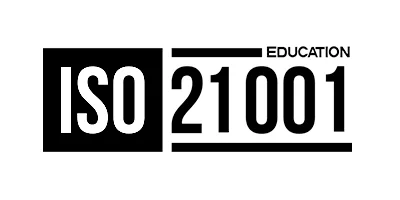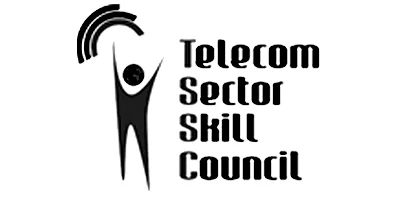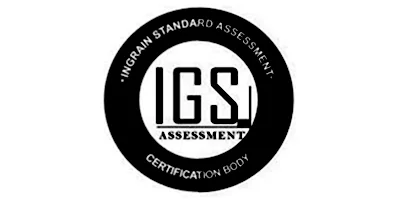Certificate In Raspberry Pi Course
4.9 9.8K+ Satisfied Learners
Introduction to Raspberry Pi, Comparison of various Rpi Models, Understanding SoC architecture and SoCs used in Raspberry Pi, Pin Description of Raspberry Pi, On-board components of Rpi.
Course Description
The Raspberry Pi Course at eCareerPluz is designed for students eager to dive into the world of embedded systems and IoT. This course provides an in-depth exploration of the Raspberry Pi platform, including its hardware architecture, programming environment, and various interfacing techniques.
Students will engage in hands-on projects that enable them to build practical applications, from basic projects like weather stations to advanced systems like home automation. With an emphasis on real-world applications, participants will gain valuable experience in programming languages such as Python and C, along with essential tools and libraries used in Raspberry Pi development. By the end of the course, students will have the skills and confidence to design, develop, and deploy their own embedded systems projects, making them well-prepared for careers in technology, engineering, and IoT development.
Raspberry Pi Course
Seeking a Date to Join the Course?
Why choose e-Careerpluz?
Skill Development
Improve your professional skills with our course.
Quality Training
Improve the quality of your work and reduce errors
Expert Tutors
Learn from certified instructors with extensive experience in utilizing these tools in professional settings.
Flexible Learning Paths
Start your learning journey with flexible learning time and convenient learning modes
Hands-on learning
Get hands-on experience through interactive labs, real-world scenarios, and projects that simulate workplace tasks.
Real-Time Projects
Learn with real-time projects that can improve programming efficiency
Raspberry Pi Course Objective:
In the Raspberry Pi Course, participants will gain a comprehensive understanding of the Raspberry Pi's architecture and operating system, enabling them to effectively design and implement innovative embedded systems and IoT solutions. Students will learn to write programs in Python and C, enhancing their programming skills and deepening their technical knowledge in real-world applications.
1. What is Raspberry Pi?
- History and models of Raspberry Pi.
- Specifications and key features.
2. Understanding the Components
- Ports and peripherals: USB, HDMI, GPIO, etc.
- Power requirements.
- SD Card preparation.
3. Setting Up the Raspberry Pi
- Installing Raspberry Pi OS.
- Basic command-line operations.
- Initial configuration using raspi-config.
1. Introduction to Linux
- Understanding file systems.
- Basic commands: navigating files, creating/deleting files.
2. Shell Scripting
- Writing and executing basic shell scripts.
- Using cron for scheduling tasks.
3. Installing and Managing Software
- Using apt for package management.
- Installing essential tools and software.
1. Introduction to Python
- Basics of Python syntax.
- Data types, conditionals, variables, and loops.
- File handling.
2. Python Libraries for Raspberry Pi
- Installing and using important libraries: RPi.GPIO, time, os.
- Understanding GPIO (General Purpose Input/Output).
- Setting up hardware components (LEDs, buttons, sensors).
- Introduction to libraries (RPi.GPIO).
- Creating your first physical computing project (e.g., blinking LED).
- Connecting to Wi-Fi and Ethernet.
- Setting up remote access (SSH).
- Introduction to IoT concepts.
- Basic projects involving network connectivity (e.g., accessing data from the web).
1. Digital Sensors
- Using GPIO pins to connect and read digital sensors.
- Examples: Switch, PIR sensor, IR sensor, and Keypad.
2. Analog Sensors
- Using external ADC (like the MCP3008) for reading analog signals.
- Examples: LDR (light-dependent resistor), potentiometers, temperature sensors (like LM35).
3. Display Interface
- LCD Display.
- 7 Segment Display.
4. I2C Sensors
- Connecting I2C sensors using SDA and SCL pins.
- Examples: Accelerometers (like MPU6050), temperature and humidity sensors (like BME280).
5. UART Sensors
- Connecting TX and RX pins for UART communication.
- Examples: GSM modules, certain types of RFID readers.
6. SPI Sensors
- Connecting MOSI, MISO, SCLK, and CS pins for SPI communication.
- Examples: Accelerometers, gyroscopes.
Example Projects:
- Create a smart home system with Raspberry Pi.
- Create a weather station to monitor local weather conditions.
- Build a robot or rover that can be controlled remotely.
- Create a device that measures indoor air quality.
- Create a doorbell that sends alerts to your phone.
- Create a smart home system with Raspberry Pi.
- Create a weather station to monitor local weather conditions.
- Build a robot or rover that can be controlled remotely.
- Create a device that measures indoor air quality.
- Create a doorbell that sends alerts to your phone.
Enquiry Now
Mode of Training
In-person Training
Benefit from hands-on practical sessions and real-time demonstrations.
Virtual Training
Engage in live, interactive sessions with instructors and fellow learners.
College Training
Customized training programs delivered to Colleges at their premises.
Self-Paced Training
Access pre-recorded lectures and course materials at your convenience.
Hybrid Training
Attend select sessions in the classroom while accessing the remainder online.
Webinars
Perfect for learners looking to acquire targeted skills quickly.
About Certification of ARM LPC2148 Microcontroller Course in Madurai
Upon successful completion of the ARM LPC2148 Microcontroller Course, participants will be awarded a certification that validates their proficiency in embedded systems programming and microcontroller interfacing using the LPC2148 architecture.
This certification is designed to meet industry standards and is recognized by leading professionals in the fields of electronics and embedded systems, ensuring it holds significant value for career advancement opportunities in technology and engineering sectors.
Furthermore, students will receive a certificate that acknowledges their skills in LPC2148 programming, interfacing with various sensors and actuators, as well as implementing real-time projects. This comprehensive training prepares them for a successful career in embedded systems development and the Internet of Things (IoT).
Get Certified Now





Related Courses
At eCareerPluz, we are committed to offering a diverse range of training programs that cater to the needs of aspiring engineers and technology enthusiasts. Our related courses include:
Raspberry Pi Course
4.6 8.7K+
PIC Microcontroller Course
4.5 10.2K+
ARM Controller Course
4.7 9.0K+
Arduino ESP32 Course
4.8 11.5K+
Arduino Controller Course
4.9 13.0K+
Altium PCB Designer Course
4.4 7.8K+
Arduino Controller Course
4.8 12.4K+